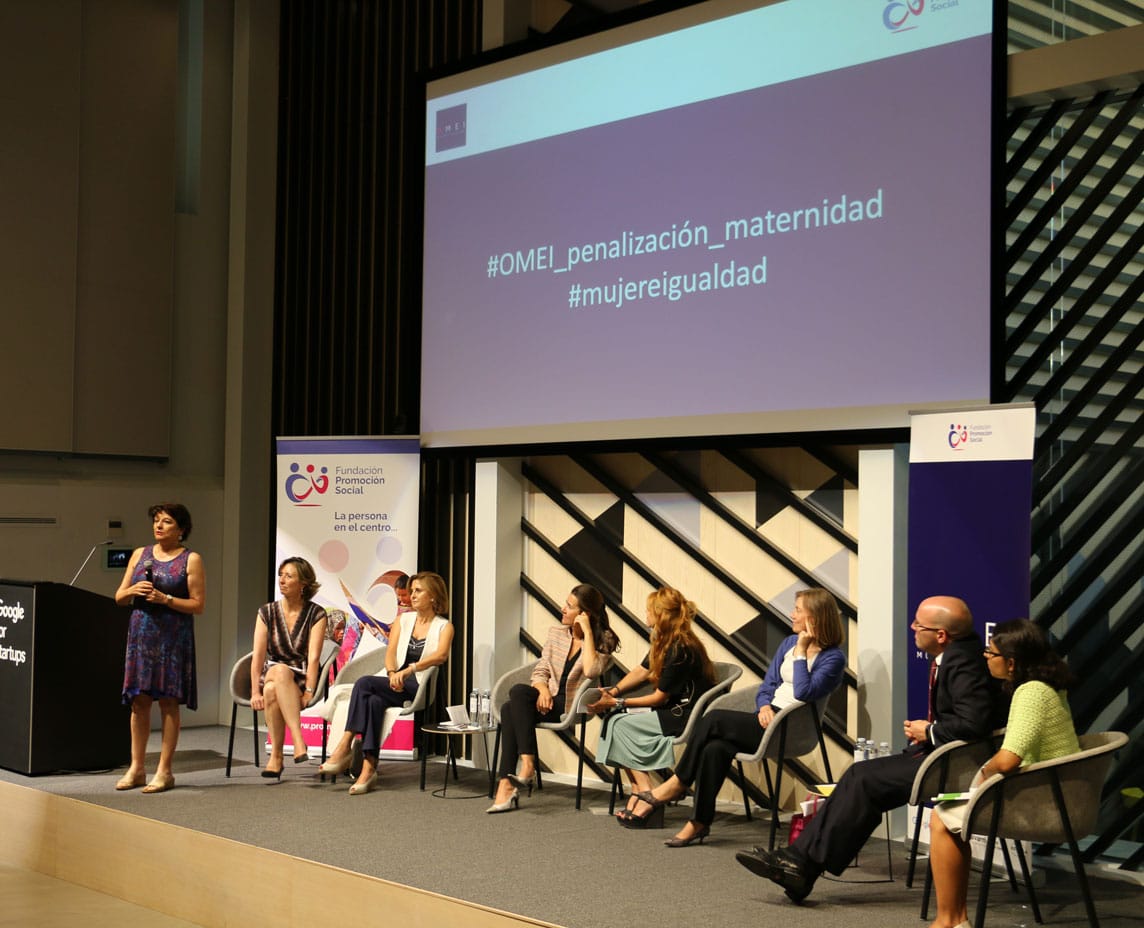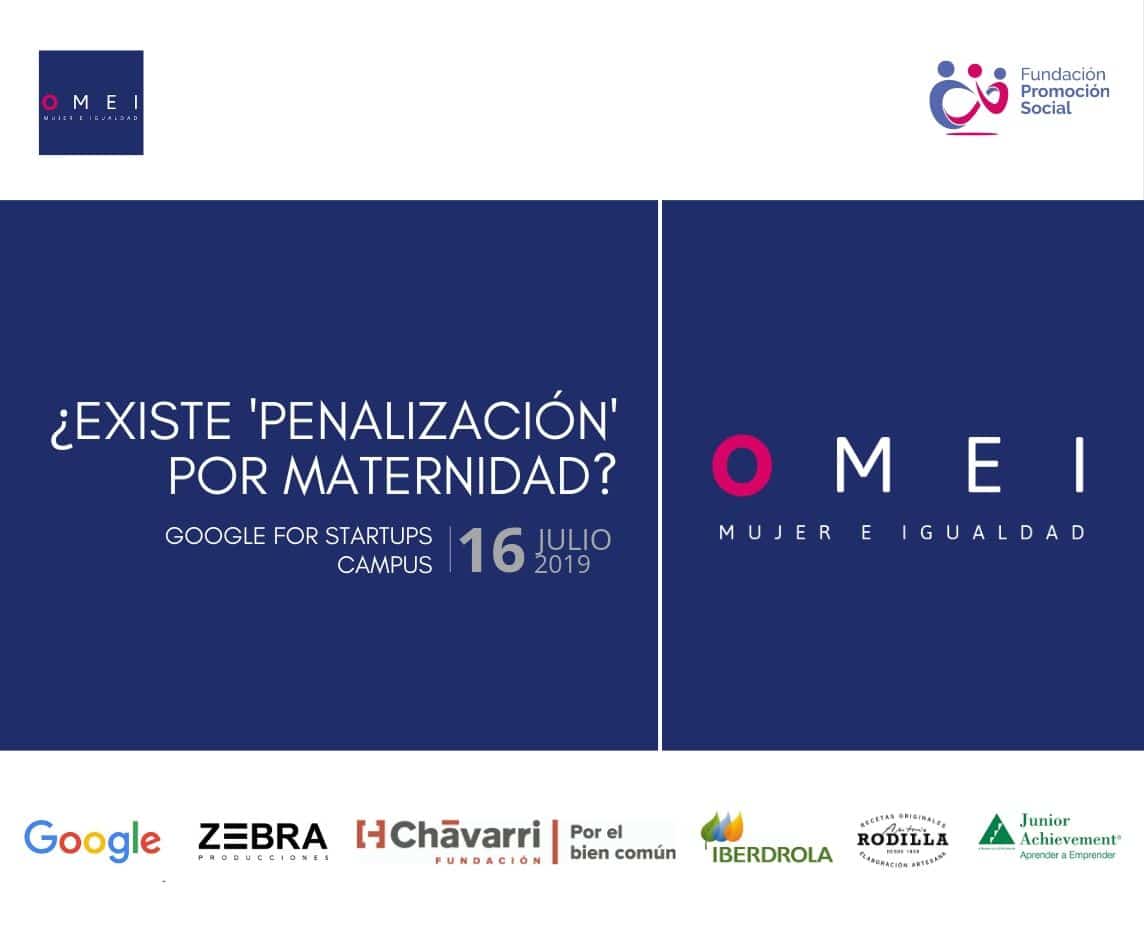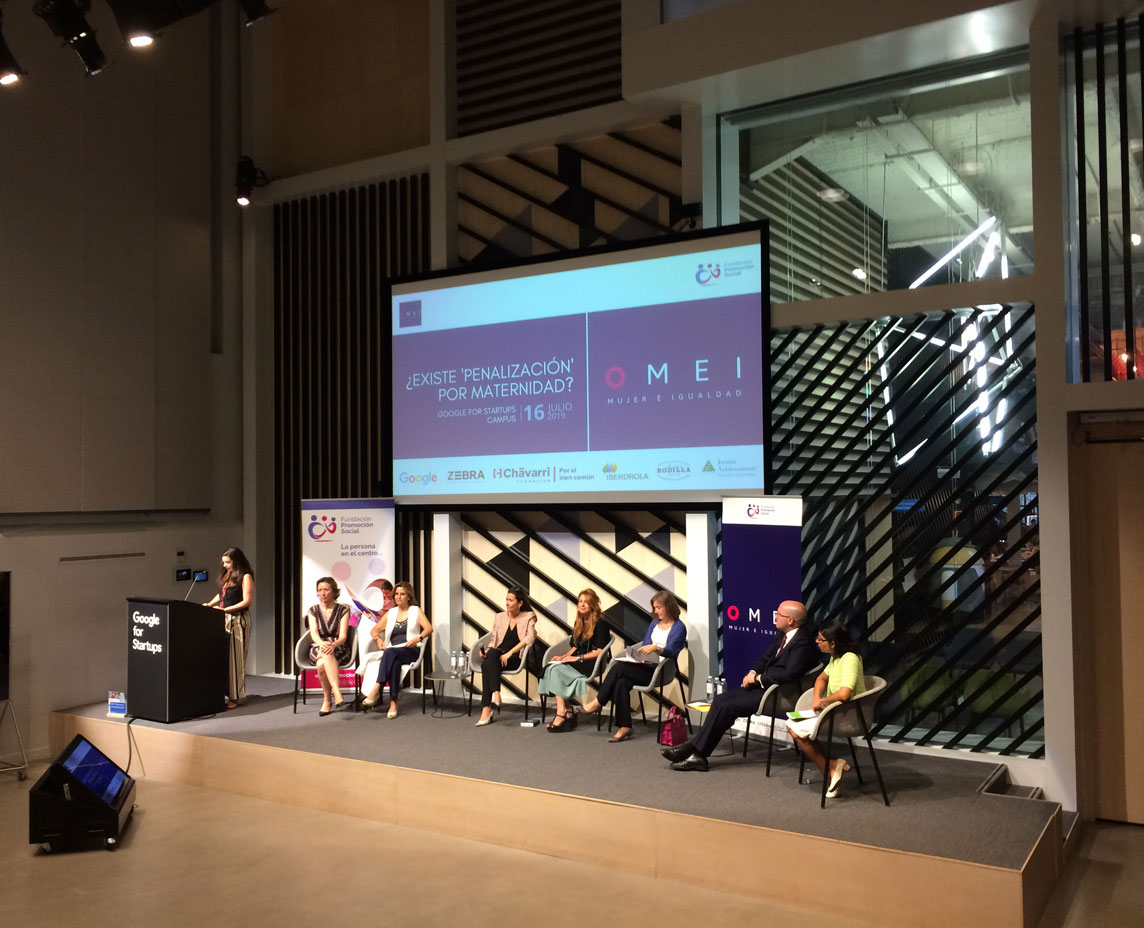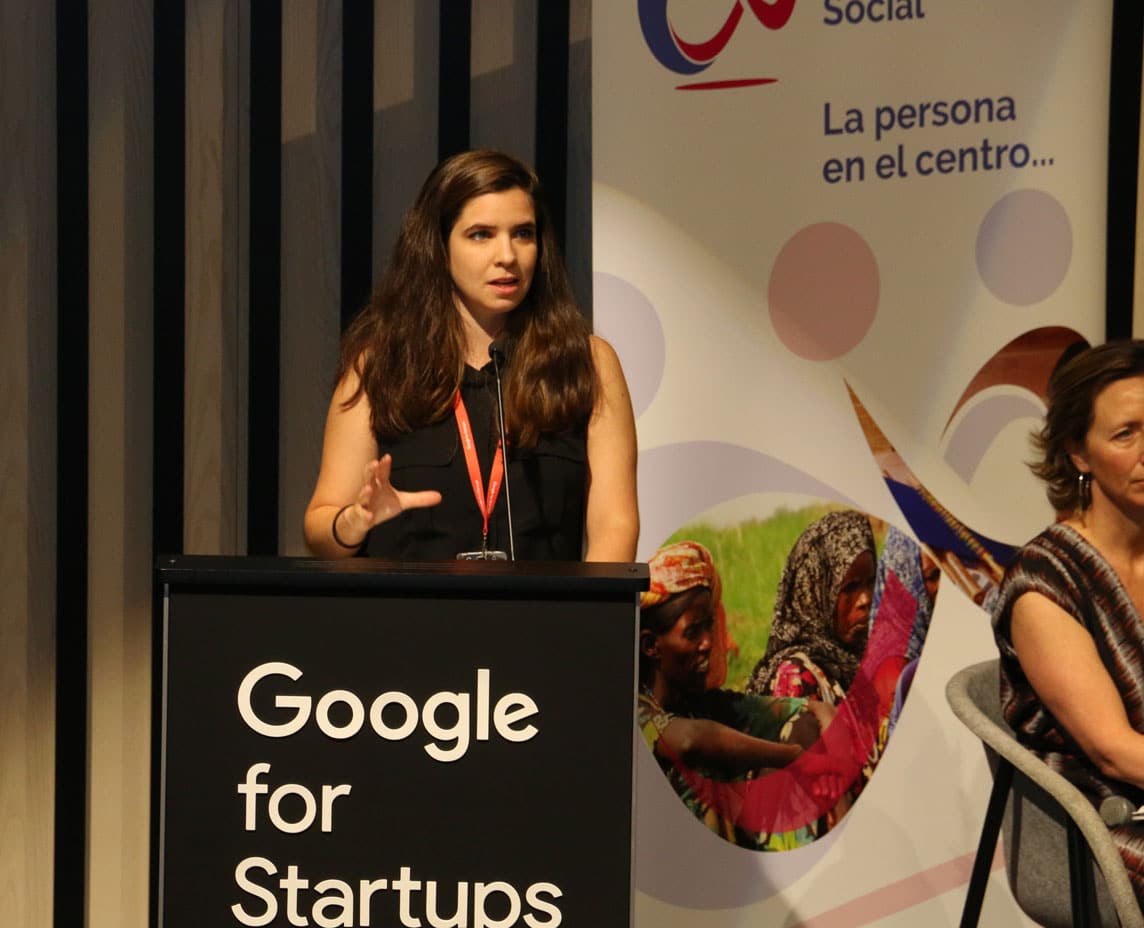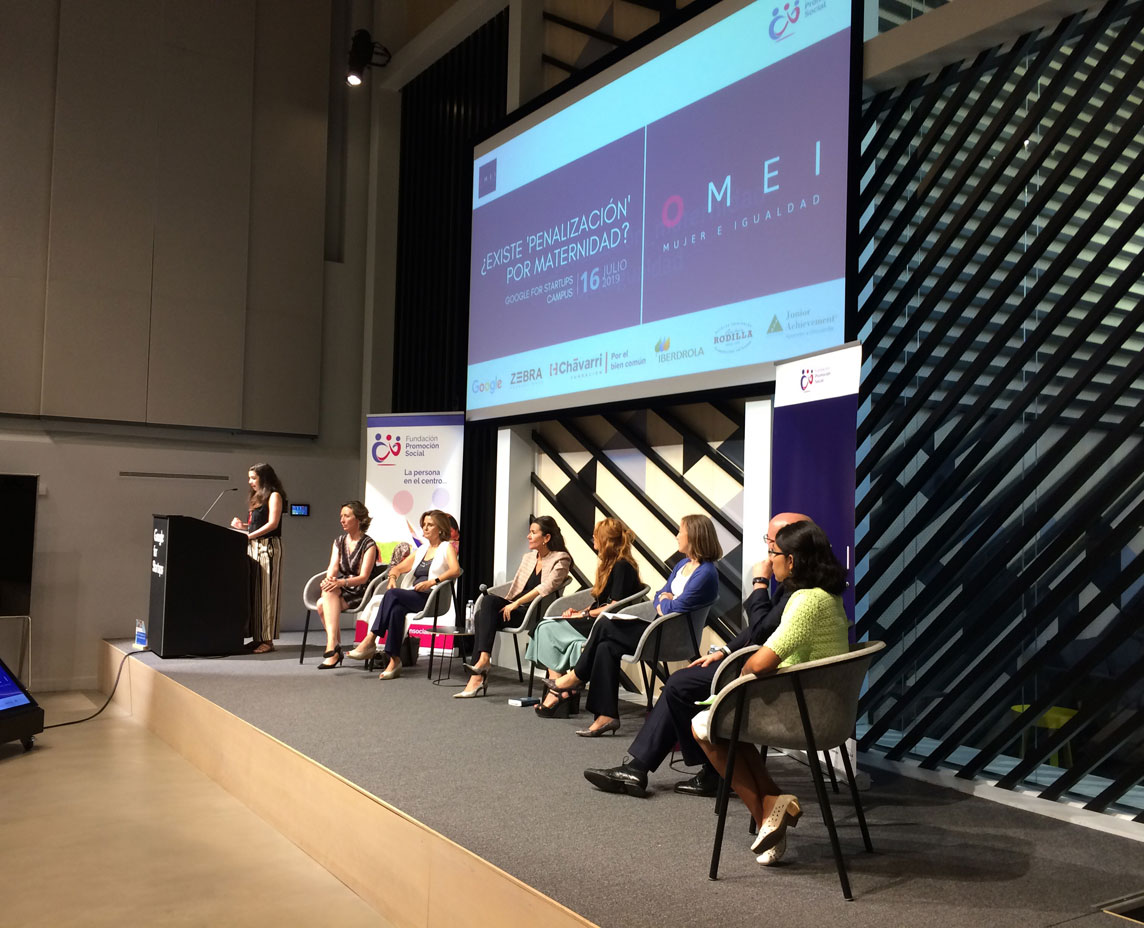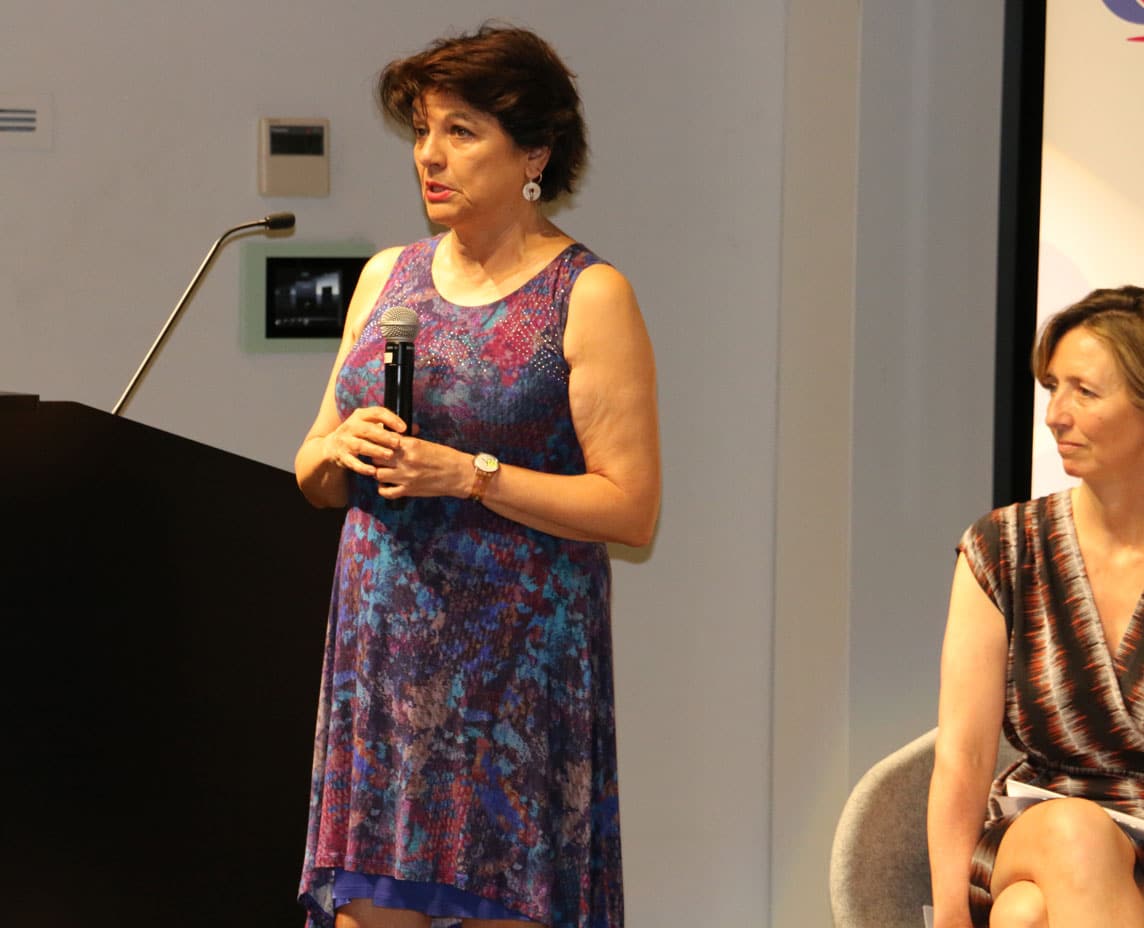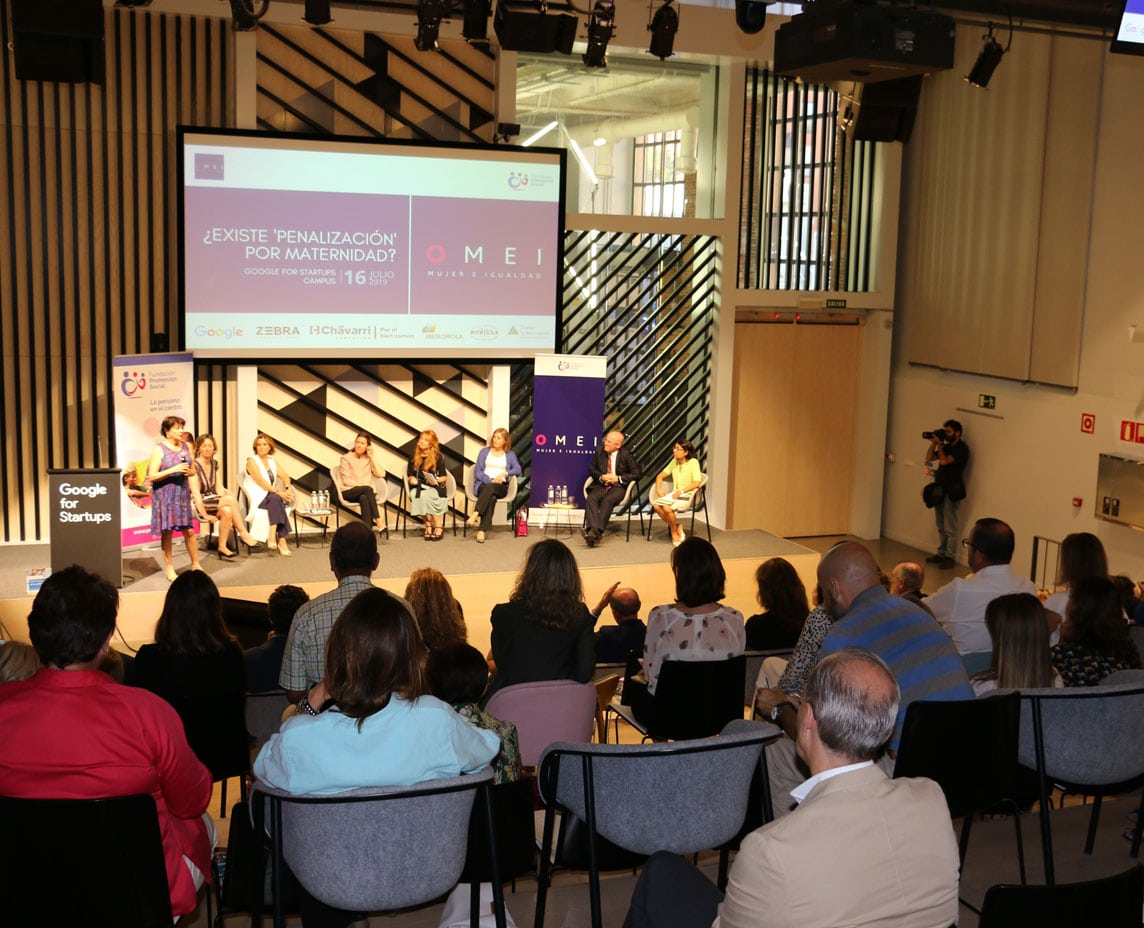The event took place on 16 July in Google for Startups Campus in Madrid, and had the Secretary of State for Equality, Soledad Murillo, for the closure.
The interventions of the participants revolved around the main conclusions of the research “Are there ‘penalties’ for motherhood? Women and the labour market in Spain from a family perspective”, conducted by the Family Policies Research Group of the Complutense University of Madrid (Grupo de Investigación en Políticas de Familia de la Universidad Complutense de Madrid), University of Seville and the Unity of Family Research and Studies (Unidad de Investigación y Estudios de Familia) of Acción Familiar. This research analyses how Spanish women face a double discrimination, due to the fact of being a woman, as well as due to the fact of being a mother. These conclusions were presented by OMEI within the framework of the 63rd Commission on the Status of Women (2019) of United Nations (CSW63).
The welcome remarks were pronounced by Ana Abade, Government Affairs & Public Policy in Google, who explained that the company supported the celebration of this event due to its commitment in helping to understand market´s inequality. She exposed how, from Google, they believe that technology is the best tool to overcome gaps and barriers in women´s inequalities.
Afterwards, María Beamonte, General Director of Fundación Promoción Social (whose objectives are human development and poverty eradication), continued talking about how the Fundación works in more than 40 countries in 4 different continents, always prioritizing education as a driving force of development, equality among women and men and women’s empowerment. This, they consider the only way of making women the leaders of development, and not only of their own, but also of the development of the rest of the society. Thereby, she pointed out that
“this commitment is what has driven Fundación Promoción Social to the creation of the Observatory “Women and Equality” (MEI)”, which has the ambition of turning into a multi-disciplinary network of experts in the analysis of women´s situation in the world.”
Following María Beamonte´s intervention, Viviana González Hincapié, Researcher in the Family Research and Studies Unit of Acción Familiar and Antonio Jesús Sánchez Fuentes, Director of the Research Group “Family Policies” from Complutense University of Madrid, co-authors of the investigation, performed a brief presentation of the conclusions of this research.
Viviana González Hincapié underlined that to understand the inequalities and the situation of men and women in the labour market, researchers have realised that it is not enough to study the gender issue if we do not incorporate variables of family settings – parental status, having children or not.
She also remarked how women that have children and that want to enter the labour market are more disadvantaged that those that do not. There is a penalty in women´s progression in the professional level, as well as a penalty in their salaries. She explained how there still is a lot to study and to get to know, and that awareness has to be raised in national and international organisms so that statistical data that allow us to know the reality and the impact of public policies are improved.
Antonio Jesús Sánchez Fuentes declared that the biggest penalty due to motherhood focuses on middle class women with an average income level. He concluded saying that,
“women suffer a double penalty, due to being women and due to being mothers, which is unfair and, in addition, has an important social impact.”
He remarked that the marginal impact of women´s salary gap disappears when the childbearing age disappears as well, while paternity for men, in the aggregated impact and from the age of 33, not only it does not have any impact, it means a bonus.
Consecutively Julieta de Micheo, coordinator of the Observatory “Women and Equality” (OMEI) and moderator of the table started a conversation where interventions form the participants succeeded regarding the principal conclusions of the research.
Ana Fernández Ardavin, Dean of IMF Business School, raised the following question “Is there a breach in education?” She considers that apparently not, but in depth, yes. According to her, no country can allow the waste of human capital originated. In the western countries women are delaying maternity to access workstations that otherwise they would not have access to.
In developing countries we can observe that the same patterns are being followed. Maternity is early and sometimes even teenager. This is why this discrimination can even jeopardize the access to work life. These countries are compelled to replicate the same development pattern of western countries, which is not desirable.
She highlighted the opportunity that new technologies offer to women who want to continue their education and to reconcile family and work at the same time.
Eva Chamizo Llatas, Director of European Affairs of Iberdrola, mainly talked about the needs of companies to adopt reconciliation measures for all the staff, men and women, as that generates productivity and improves the feelings of motivation and sense of belonging. She commented that,
“nowadays, a 42,8% of our Management Board are women, the Vice-President of the Board is a woman and two of the four advisory committees are chaired by women”.
She showed her rejection to the reasoning that this number of women responded to quotas and not to the worth of these women.
She also remarked that in Iberdrola, the measure of reconciliation that has had more impact has been stablishing a mandatory continuous work day for almost every employee. By doing so, the stigma that supposed conciliating professional and personal life has been eradicated, diminishing an 80% the applications of reduced work day.
The measures of reconciliation, she stresses, have to be for both men and women so they have a real impact.
Blanca Narváez, General Director of the Junior Achievement Foundation, stated that cognitive skills are in the basis of the decisions that people take throughout their life. She claimed that education is an extremely powerful tool to eliminate stereotypes, such as “looking after children means less sacrifice for women than for men” or “boys are better at maths than girls.”
The closure of this roundtable meeting was performed by the Secretary of State for Equality, Soledad Murillo, for whom this debate of if maternity supposes a penalty for women is absolutely necessary, as she considers that it is true, maternity penalizes.
This is why, she thinks, measures should be introduced. Thus, she remarked how, in a country with one of the lowest birth rates of the world, it is still being asked to women in work interviews if they intend to have children.
She pointed out that time is an extremely valuable good. She considers time is an asset, there are 24 hours for all of us, and women spend many hours looking after their families. She also introduced the question of what happens with time expropriation, and that it is important to make correlations between the available time and family-dedicated time.
She commented on how she had received critics form the business world due to the paternity leave, as they consider it affects the right to work. Nevertheless, she considers that modernity and maturity must prevail, as well as knowing that children are a common project and that education in developed countries must talk about caring, attention and co-responsibility. Paternity is something that must always be thought.
According to her, the only stable relationship is the children-parent one and we must look after them in a co-responsible way. A common negotiation is necessary.





